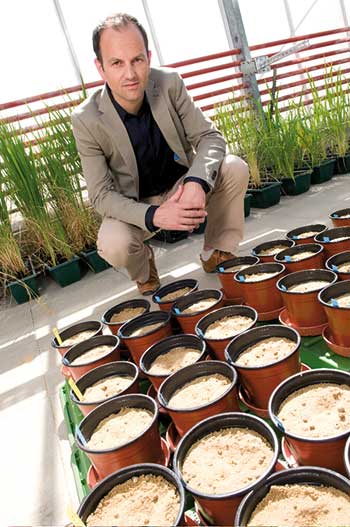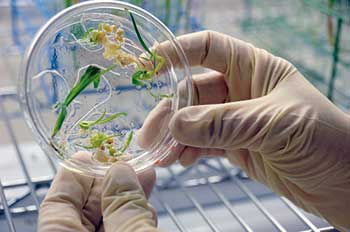An International Affair
Career prospects in molecular plant research
Career strategies for young European scientists
by Bettina Dupont, Labtimes 05/2013
Page 1 | Page 2 | Page 3
Stable jobs in Switzerland
”There are good opportunities in basic plant research in Europe because it is well-supported. In applied plant research, the situation is more difficult. Companies gradually move their R&D facilities outside Europe,” said Christian Hardtke, a professor at the University of Lausanne, Switzerland. His lab is investigating the genetic control of plant growth and development (see box “Useful Links”).
His former employees had no problems to find a stable job, he said. However, not all stayed in science. Hardtke has supervised 20 postdocs and PhD students, so far. Four of his former lab members have permanent academic research positions. Some continued their academic research careers as postdocs, while others joined the R&D or marketing and sales departments of companies, such as Bayer CropScience and Syngenta. Some former members of Hardtke’s lab or department are working in the pharmaceutical industry, as consultants, as clinical monitors, in genetic counselling or in public administration. “Molecular plant scientists have generic transferable skills, which are very useful for positions in the life sciences in general and beyond,” the plant geneticist explained. “With their rigorous training in techniques and concepts of molecular genetics, they are on a par with other life scientists.”
Europe in danger of missing the boat
Last year, Hardtke visited research facilities at BWK Agriculture Biotech, a company in Beijing, China. “It is impressive how commercial biotechnological plant research is developing there. Europe should not ignore these trends and pretend to have a self-sufficient economy. We already depend on imported transgenic feed, today,” he pointed out.
To strengthen the job market for molecular plant geneticists in Europe, Hardtke advocates the founding of more plant biotech start-ups with expertise in next generation molecular techniques. “I fear that Europe might become a backwater that loses its ability to create and evaluate state-of-the-art sustainable plant products as technology progresses elsewhere. We cannot afford to become dependent on the expertise of other countries; the world will move beyond the simple-minded GMO debate and our well-trained scientists will have to go overseas to do applied research,” he said. To improve the public perception of green genetic engineering, knowledge should become more widespread about how society benefits from molecular plant research on a daily basis, he added.
Page 1 | Page 2 | Page 3
Last Changed: 01.10.2013







